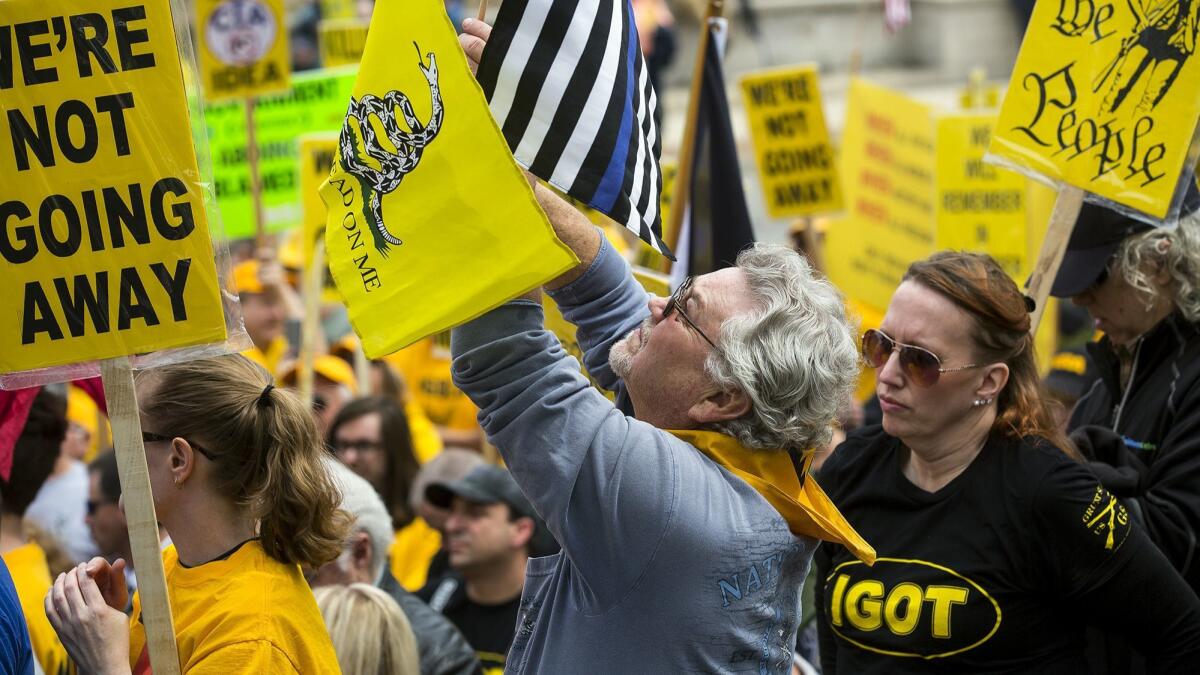Opinion: Local officials have no business deciding the constitutionality of state gun laws

- Share via
Efforts to toughen gun laws in Illinois, Washington and New Mexico and some other states have given rise to a highly questionable local backlash — county commissions and sheriffs declaring the laws unconstitutional, and refusing to enforce them. That’s an outrageous step. Police shouldn’t be basing enforcement decisions on whether they agree with a law.
The local responses are part of the “2nd Amendment sanctuary movement,” under which low-level officials refuse to enforce gun laws they dislike. Despite the nod to “sanctuary cities,” where states or local governments bar using local resources to enforce federal immigration codes, there are significant differences.
First, immigration laws are part of the federal civil code and generally not enforced as criminal violations. There are exceptions: Crossing the border without permission is a misdemeanor; repeated illegal entry is a felony. But mere physical presence in the country without permission is not a violation of criminal law.
Recognizing that separation of responsibilities, and the chilling effect on local law enforcement when immigrant communities fear police, the immigration sanctuary movement limits the cooperation of local agencies in enforcing federal civil codes.
That’s not their job.
But the gun sanctuary movement bars local police from fulfilling a basic responsibility — enforcing state criminal codes — in a local usurpation of state authority based on policy disagreements. Some of the gun sanctuary laws are toothless. They make ambiguous references to not enforcing “unconstitutional laws” without declaring any specific law to be in violation of the 2nd Amendment, which makes those versions more acts of protest than acts of defiance.
But in other cases, the laws and sheriffs’ pronouncements are specific, and bar local enforcement of the state laws.
That’s shaky ground. A parallel would be the Los Angeles County sheriff deciding for some reason that state laws against robbery are unconstitutional and orders his deputies not to investigate those crimes. Or to return to the federal immigration codes, if the Department of Homeland Security decided that Congress’ immigration codes are unconstitutional and so stopped enforcing them (yeah, I know, that would happen, like, never).
Enter the Fray: First takes on the news of the minute »
The problem is that sheriffs and county commissioners aren’t framing their resistance as a matter of prosecutorial discretion, under which enforcement decisions are based on where it makes the most sense to spend finite resources. If you don’t have many street cops and car-pedestrian accidents are rare, a police department would be right to not spend a lot of time and effort writing jaywalking tickets.
In the gun sanctuary movement, local officials are assuming for themselves the responsibility to determine which laws are constitutional, and which are not.
That’s not their job. And refusing to enforce laws just because they disagree with them on political grounds undermines the legal system itself.
More to Read
A cure for the common opinion
Get thought-provoking perspectives with our weekly newsletter.
You may occasionally receive promotional content from the Los Angeles Times.










